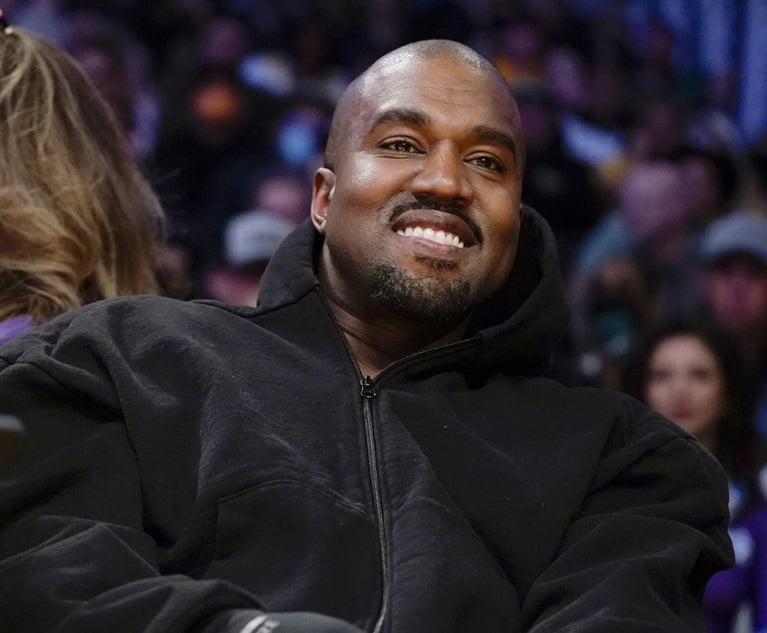Seeking Benefits Owed Under an ERISA Top-Hat Plan: A Primer for Litigators
Michael C. Rakower and Melissa Yang write: Not all benefit plans are treated equally under ERISA. Some are regulated less closely than others, such as "top-hat plans," unfunded employee benefit plans established principally to provide deferred compensation for "a select group of management or highly compensated employees." Although excluded from some requirements, top-hat plans are subject to ERISA's civil enforcement provisions.
July 03, 2017 at 02:01 PM
26 minute read
Congress enacted the Employee Retirement Income Security Act of 1974 (ERISA) to protect the interests of participants and their beneficiaries in employee benefit plans by setting forth certain disclosure and reporting requirements, establishing fiduciary standards of care, and providing for appropriate remedies and sanctions exclusively through the federal courts.1 However, not all benefit plans are treated equally under ERISA. Some are regulated less closely than others.2 One such plan is a “top-hat plan,” an unfunded employee benefit plan established principally to provide deferred compensation for “a select group of management or highly compensated employees.”3
Recognizing that participants in top-hat plans possess sufficient influence to negotiate the design and operation of their deferred compensation plan, Congress excluded top-hat plans from ERISA's participation and vesting requirements under 29 U.S.C. §§1051-1061, funding provisions under 29 U.S.C. §§1081-1086, and fiduciary responsibility provisions under 29 U.S.C. §§1101-1114.4 Yet, top-hat plans are subject to ERISA's civil enforcement provisions. If an employer reneges on its obligation to provide benefits under a top-hat plan, a participant or beneficiary may commence an action “to recover benefits due to him under the terms of his plan, to enforce his rights under the terms of the plan, or to clarify his rights to future benefits under the terms of the plan” under 29 U.S.C. §1132(a)(1)(B).5 This article explores fundamental issues litigants must address in any litigation over top-hat benefits.
Determining Statute of Limitations. ERISA does not identify a statute of limitations period for actions brought under 29 U.S.C. §1132(a)(1)(B). Courts in New York have looked to the statute of limitations period for breach of contract, reasoning that a breach claim is the most analogous to a claim for benefits under 29 U.S.C. §1132(a)(1)(B), and have held that a six-year statute of limitations period applies.6
This content has been archived. It is available through our partners, LexisNexis® and Bloomberg Law.
To view this content, please continue to their sites.
Not a Lexis Subscriber?
Subscribe Now
Not a Bloomberg Law Subscriber?
Subscribe Now
NOT FOR REPRINT
© 2025 ALM Global, LLC, All Rights Reserved. Request academic re-use from www.copyright.com. All other uses, submit a request to [email protected]. For more information visit Asset & Logo Licensing.
You Might Like
View All

The Foreign Corrupt Practices Act: A Trip-Wire for Financial Executives
9 minute read
Justices, Unanimously, Extend Reach of Federal Age-Discrimination Law
Trending Stories
Who Got The Work
J. Brugh Lower of Gibbons has entered an appearance for industrial equipment supplier Devco Corporation in a pending trademark infringement lawsuit. The suit, accusing the defendant of selling knock-off Graco products, was filed Dec. 18 in New Jersey District Court by Rivkin Radler on behalf of Graco Inc. and Graco Minnesota. The case, assigned to U.S. District Judge Zahid N. Quraishi, is 3:24-cv-11294, Graco Inc. et al v. Devco Corporation.
Who Got The Work
Rebecca Maller-Stein and Kent A. Yalowitz of Arnold & Porter Kaye Scholer have entered their appearances for Hanaco Venture Capital and its executives, Lior Prosor and David Frankel, in a pending securities lawsuit. The action, filed on Dec. 24 in New York Southern District Court by Zell, Aron & Co. on behalf of Goldeneye Advisors, accuses the defendants of negligently and fraudulently managing the plaintiff's $1 million investment. The case, assigned to U.S. District Judge Vernon S. Broderick, is 1:24-cv-09918, Goldeneye Advisors, LLC v. Hanaco Venture Capital, Ltd. et al.
Who Got The Work
Attorneys from A&O Shearman has stepped in as defense counsel for Toronto-Dominion Bank and other defendants in a pending securities class action. The suit, filed Dec. 11 in New York Southern District Court by Bleichmar Fonti & Auld, accuses the defendants of concealing the bank's 'pervasive' deficiencies in regards to its compliance with the Bank Secrecy Act and the quality of its anti-money laundering controls. The case, assigned to U.S. District Judge Arun Subramanian, is 1:24-cv-09445, Gonzalez v. The Toronto-Dominion Bank et al.
Who Got The Work
Crown Castle International, a Pennsylvania company providing shared communications infrastructure, has turned to Luke D. Wolf of Gordon Rees Scully Mansukhani to fend off a pending breach-of-contract lawsuit. The court action, filed Nov. 25 in Michigan Eastern District Court by Hooper Hathaway PC on behalf of The Town Residences LLC, accuses Crown Castle of failing to transfer approximately $30,000 in utility payments from T-Mobile in breach of a roof-top lease and assignment agreement. The case, assigned to U.S. District Judge Susan K. Declercq, is 2:24-cv-13131, The Town Residences LLC v. T-Mobile US, Inc. et al.
Who Got The Work
Wilfred P. Coronato and Daniel M. Schwartz of McCarter & English have stepped in as defense counsel to Electrolux Home Products Inc. in a pending product liability lawsuit. The court action, filed Nov. 26 in New York Eastern District Court by Poulos Lopiccolo PC and Nagel Rice LLP on behalf of David Stern, alleges that the defendant's refrigerators’ drawers and shelving repeatedly break and fall apart within months after purchase. The case, assigned to U.S. District Judge Joan M. Azrack, is 2:24-cv-08204, Stern v. Electrolux Home Products, Inc.
Featured Firms
Law Offices of Gary Martin Hays & Associates, P.C.
(470) 294-1674
Law Offices of Mark E. Salomone
(857) 444-6468
Smith & Hassler
(713) 739-1250







